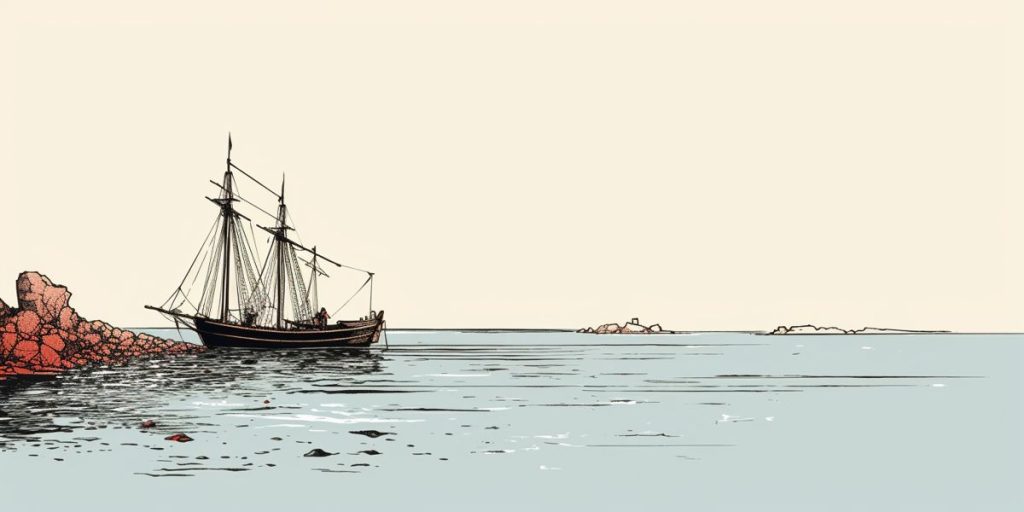The RFA Lyme Bay aid ship, carrying over 80 tonnes of humanitarian aid, is currently stalled off the coast of Cyprus, awaiting consent from both sides of the Israel-Gaza conflict for docking and distribution. Cyprus is playing a role in storing and potentially transferring the aid, while diplomatic and logistical challenges, including discussions with the Israeli government and the establishment of a sea corridor, are contributing to the delay.
Why is the RFA Lyme Bay aid ship stalled and what are the challenges?
The RFA Lyme Bay, laden with over 80 tonnes of humanitarian aid, is stalled due to the need for consent from both sides of the Israel-Gaza conflict for docking and distribution. Diplomatic and logistical challenges, including discussions with the Israeli government and the establishment of a sea corridor, contribute to the delay. Cyprus plays a role in storing and potentially transferring the aid.
Stalled Humanitarian Efforts
Three days have passed since the RFA Lyme Bay left Cyprus, bound for Israel with a substantial cargo exceeding 80 tonnes of humanitarian aid. Yet, the vessel remains laden, its assistance undelivered, as it lingers considerably far from Israeli waters. The whereabouts of the ship were shrouded in mystery until a recent briefing to the UK Parliament by Andrew Mitchell, Minister of State for Development and Africa.
During this briefing, it was revealed that the British government is actively working to ensure that additional humanitarian aid reaches Gaza. However, the RFA Lyme Bay currently hovers off the coast of Cyprus, positioned to embark only when it is clear the aid can be properly received and distributed. In a similar vein, another government official, Richard Benyon, addressed the House of Lords, indicating the need for consent from both sides of the conflict before docking could proceed, a stipulation that adds to the complexity of the mission.
Cyprus’s Involvement
The government of Cyprus, particularly under the leadership of President Nikos Christodoulides, has been vocal about the establishment of a humanitarian aid sea corridor, dubbed Amalthia. This corridor’s conception has been a personal crusade for Christodoulides, who has energetically promoted the initiative in a manner akin to a marketing campaign. While commendable in its intentions, this could have been pursued with more discretion, avoiding the fanfare and maintaining a sense of proportion.
Despite the enthusiasm, Cyprus’ capability to establish such a sea corridor is limited, given its lack of a naval force. Should the RFA Lyme Bay eventually set course for Israel, it would be accompanied by Royal Navy warships, with Cyprus’ role primarily being the storage of aid before its further transportation. Thus, Cyprus would serve primarily as a conduit for aid, with speculation suggesting that delivery to Gaza may transpire by sea or potentially via the Rafah crossing by land transport.
Diplomatic and Logistical Challenges
On the diplomatic front, there have been active discussions with the Israeli government, which dispatched officials to explore logistics. Eli Cohen, Israel’s foreign minister, visited to discuss the fast-tracking of aid to Gaza and the possibility of establishing a maritime corridor, a concept promoted by Israel in conjunction with regional partners.
The future of aid delivery to Israel remains uncertain, with ongoing meetings and discussions. The Cypriot government has played its part, offering its services as a storage and loading hub for the humanitarian supplies. However, the execution of the operation may soon move beyond its control, perhaps a welcome development for a country that has already contributed to this humanitarian endeavor.
1. Why is the RFA Lyme Bay aid ship stalled and what are the challenges?
The RFA Lyme Bay aid ship is stalled due to the need for consent from both sides of the Israel-Gaza conflict for docking and distribution. Diplomatic and logistical challenges, including discussions with the Israeli government and the establishment of a sea corridor, contribute to the delay. Cyprus plays a role in storing and potentially transferring the aid.
2. What is Cyprus’s involvement in the situation?
Cyprus, under the leadership of President Nikos Christodoulides, has been vocal about establishing a humanitarian aid sea corridor called Amalthia. However, Cyprus’s lack of a naval force limits its capability in establishing the corridor. Cyprus’s role primarily involves storing the aid before further transportation. Delivery to Gaza may happen by sea or potentially via the Rafah crossing by land transport.
3. What are the diplomatic efforts being made to resolve the situation?
Active discussions have taken place between the Israeli government and officials from other countries, including Eli Cohen, Israel’s foreign minister, who visited to discuss fast-tracking aid to Gaza and the possibility of establishing a maritime corridor. Ongoing meetings and discussions are taking place to determine the future of aid delivery to Israel.
4. How long has the RFA Lyme Bay aid ship been stalled and why?
The RFA Lyme Bay aid ship has been stalled for three days since it left Cyprus. The delay is primarily due to the need for consent from both sides of the Israel-Gaza conflict for docking and distribution. Diplomatic and logistical challenges, as well as discussions with the Israeli government and the establishment of a sea corridor, contribute to the prolonged delay.

